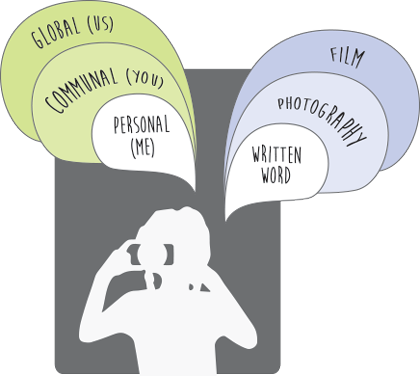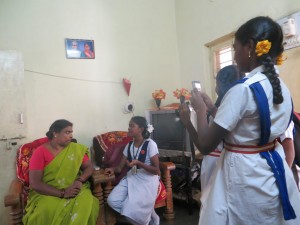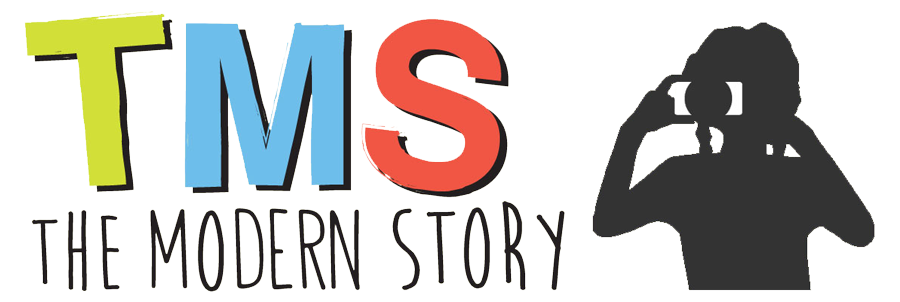
PRODUCE multimedia projects that involve pre-production, production and post-production phases of conceptualization, collaboration and independent work
PRACTICE academic skills
-
literacy (English and in their mother tongues)
-
researching, gathering, analyzing, and presenting evidence
-
writing (creative, nonfiction, explicative)
-
public speaking and interviewing
ENGAGE with their community through oral history projects, guest speakers, field trips and service learning projects
INTERACT globally through digital storytelling exchanges with students, educators, and classrooms across the world
Throughout the PROCESS, TMS Students Write, Discuss, Debate, Problem Solve, Celebrate, Observe, Analyze, Envision, Enact Change
At the end of the semester, TMS Students showcase the PRODUCT, polished video shorts, to their schools, families, communities, and global community
“The teacher is of course an artist, but being an artist does not mean that he or she can make the profile, can shape the students. What the educator does in teaching is to make it possible for the students to become themselves.”
― Paulo Freire, We Make the Road by Walking, Conversations on Education and Social Change
WHAT DOES A TMS GLOBAL DIALOGUE LOOK LIKE?
TMS students in South Africa research and produce Oral History Stories about their relatives’ lives during Apartheid, and TMS students in India respond with stories about their relatives’ experiences during India’s Independence. TMS educators facilitate the process of producing and understanding the stories through historical research, contextualization, comparison and personal reflection. What are the results? Through youth produced media, students learn firsthand about historical and contemporary issues through listening, watching and responding to their peers’ projects around the globe.

TMS students interviewing community members.
To enhance teacher professional development on a global scale, we aim to create a 21st century global platform that leverages the videos and written narratives produced by students to create lesson plans that are utilized in classrooms around the world. Using this student generated curriculum, educators can engage students with other cultures in a deeper and more engaging way. We offer workshops for educators who seek to modernize their curriculum and to reconfigure the position of instructor to facilitator in a 21st century classroom in order to empower the student and place her at the center of her education.
